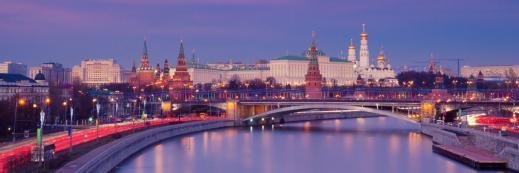
mzabarovsky - Fotolia
Moscow’s 2019 Startup Village rewards innovation
Moved to a bigger site, Moscow’s annual Startup Village continues to expand, with interest from large corporates growing
The seventh edition of Moscow’s open-air technology festival and conference, Startup Village, took place at the Russian capital’s Skolkovo Innovation Centre in May, aimed at fostering international collaborations and helping tech startups to find partners among large corporations and state institutions.
This year’s event moved to a new venue on the same premises, spread over a much larger area than before. It drew in 4,500 startups and about 1,000 investors from 85 countries.
“Startup Village is a living environment that generates new relationships and partnerships across all the business community,” said Viktor Vekselberg, chairman of the board of the Skolkovo Foundation, which manages the innovation centre, said at the opening ceremony.
At the heart of the event was a contest for ideas and companies, with the winners receiving cash awards of between RUB1m ($15,000) and RUB5m ($76,000).
The winning ideas and companies’ products ranged from biotech to construction to social media monitoring, all of them making use of cutting-edge technologies.
According to the event’s organisers, the contest aims to reflect current tech trends, as well as showcase products that could be in demand from various sectors of the economy.
“We announce nominations in the contest, knowing that there is certain demand for solutions in the areas we choose as categories,” Oleg Mosyazh, deputy general director of Skolkovo Forum, the innovation centre’s event division, told Computer Weekly.
“Out of the six winners, two based their solutions on virtual reality or augmented reality technologies, and four companies use big data.”
Read more about Moscow’s Startup Village
- Startup Village in Moscow 2018 was attended by more international companies and investors than ever before.
- Just days after Russian president Vladimir Putin announced the development of a digital economy as one of the government’s priorities, open-air tech festival Startup Village 2017 attempted to fuel partnerships between startups and big business.
- In spite of the Russian economy’s poor state and sanctions imposed by the European Union and the US over Ukraine and Crimea in 2014, the local tech startup scene is developing rapidly, cashing in on government policy to favour local suppliers and the lower costs caused by the weak national currency.
- Some 14 agreements totalling just over £178m were signed on the first day of Startup Village 2015 in Russia.
According to Mosyazh, the increasing international presence at the conference – first noticed at last year’s event – continued this year.
“This year, about 1,000 attendees came from foreign countries, including speakers, investors, representatives of startups and corporations,” he said, adding that the largest delegations were from Italy, Korea and Kazakhstan, followed by China, the US, Germany, Japan, Israel and Finland.
During the event, agreements were signed between the Skolkovo Foundation, the Italian Trade Agency and the Italian Confederation for the Promotion of Artisans and Small Businesses to exchange expertise and promote innovations.
Italy is Russia’s major business partner in Europe and, despite international sanctions imposed on Russia over the annexation of Crimea and support for rebels in east Ukraine, Russia has been able to step up its exports to Italy.
Bridging startups and large corporations
Another trend that the event’s organisers said has continued over recent years is increased interest from larger corporations in technology developed by startups.
“For at least a couple of years, we have been seeing increased interest from larger corporations,” said Mosyazh. “Whereas previously, mostly independent accelerators, such as 500 Startups or Y Combinator, helped startups to grow, today the corporate sector plays a much bigger role.
“Interest in solutions offered by startups has traditionally come from such industries as FinTech, retail and telecoms, but, most recently, manufacturing companies have expressed substantial interest. Another sector that has begun to show interest is construction and development.”
IIoT and AI on the rise
One technology that is gaining popularity among potential industrial customers is the industrial internet of things (IIoT). Last year, the total value of that segment in Russia reached RUB150bn ($2.3bn) and is projected to grow to RUB250bn ($3.8bn) by 2020.
But the adoption process for IIoT-based technology is not always smooth. “IIoT solutions are still hard to introduce into the real economy,” said Dmitry Lakontsev, head of the IoT competence centre at Skolkovo, said during a panel discussion. “When it comes to most basic systems, such as those reporting on whether a device or a vehicle is in operation, it is easier because you immediately see an economic effect.
“But when it comes to more complex systems, such as those used at continuous-cycle enterprises, such as the metals industry, the systems work well when operated by the company that developed and installed them and not so well when operated by regular employees.”
However, some larger companies have successfully launched innovative systems based on a combination of technologies, such as IoT, AI and big data.
“We have developed a unique business data monitoring system that encompasses all of our stores,” said Fabricio Granja, CIO at X5 retail group, in a panel discussion on AI. “The system monitors all the cashiers, the temperature in the stores and other parameters and automatically resolves problems or reports them to another, more complex system, if a problem can’t be resolved on the spot.
“The system significantly reduces IT spending. We have 15,000 stores, 42 warehouses and 3,000 trucks all over Russia, and sensors collect information from all of them. This is the size of data we collect.”
Incidentally, while the Startup Village was in progress, praise for AI came from the top as Russian president Vladimir Putin stressed the technology’s importance for the country’s digital future at a meeting with secondary school students.
“This is indeed one of the key areas of technological development which determines, and will continue to determine, the future of the entire world,” said Putin.





